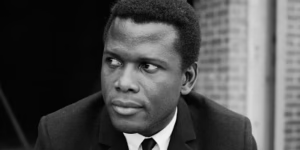Switzerland Prepares to Host Eurovision Despite Controversy
The Road to Hosting
Switzerland won the right to host the Eurovision Song Contest after Nemo, a Swiss singer, triumphed at this year’s event with "The Code," a catchy track in which the nonbinary performer sang and rapped about their journey to realizing their gender identity. The win brought excitement and anticipation for the weeklong event, but it also sparked controversy in the Swiss news media over the potential cost of staging the competition.
Cost Concerns and Political Divisions
The debate over the issue has been marked by hand-wringing in the Swiss news media, with some lawmakers from larger right-leaning parties backing the Federal Democratic Union campaign, which seeks to prevent government funding for the event. The campaign has been met with resistance from others, including members of the center-right Swiss People’s Party, which has the most members in the Swiss Parliament. Pascal Messerli, the party’s president in Basel, has said that he would not campaign for a referendum over Eurovision, citing the potential benefits of hosting the event, such as attracting tourists to the city.
A Divided City
Basel, which was campaigning to become the host, has been a focal point of the debate. Marcel Rohr, the editor in chief of the city’s main newspaper, wrote in an editorial that the debate over the issue was "brimming with small-mindedness." Eurovision, he argued, is a huge opportunity for Basel, which could not be better advertised in 2025. However, not everyone in the city is convinced. Some lawmakers have backed the Federal Democratic Union campaign, citing concerns about the cost of hosting the event.
The Impact of a Referendum
Even if a referendum looks unlikely to succeed, Eurovision’s organizers are not ignoring the threat. Edi Estermann, a spokesman for SRG SSR, the Swiss national broadcaster that will produce the show, said that the referendum campaign "brings with it a certain amount of planning uncertainty." If the campaign were to succeed, he added, next year’s Eurovision party "would have to be greatly reduced." However, Estermann also downplayed some of the criticisms leveled against the event, including accusations of Satanism. "These performances should not always be taken so seriously," he said.
Conclusion
The controversy surrounding Eurovision in Switzerland highlights the challenges of hosting a major international event. While the potential benefits of hosting the competition are undeniable, the costs and logistics of staging the event can be daunting. As the debate continues, it remains to be seen whether the Swiss government will be able to overcome the opposition and host the event as planned.
FAQs
Q: What is the Eurovision Song Contest?
A: The Eurovision Song Contest is an annual international song competition held among member countries of the European Broadcasting Union (EBU). The competition features performances by popular singers and bands from each participating country, with a winner chosen by a combination of jury and public voting.
Q: Who won the Eurovision Song Contest this year?
A: Nemo, a Swiss singer, won the Eurovision Song Contest this year with the song "The Code."
Q: What is the controversy surrounding Eurovision in Switzerland?
A: The controversy surrounds the potential cost of hosting the event, with some lawmakers and citizens opposing government funding for the competition. Accusations of Satanism and other criticisms have also been leveled against the event.
Q: What is the stance of the Swiss government on hosting Eurovision?
A: The Swiss government has not yet taken a formal stance on hosting Eurovision, but the country’s national broadcaster, SRG SSR, has confirmed its intention to produce the show.
Q: What are the potential benefits of hosting Eurovision?
A: Hosting Eurovision can bring significant benefits to a city, including increased tourism and exposure. Basel, which is set to host the event, has highlighted the potential benefits of hosting the competition.
Q: What are the potential consequences of a referendum opposing government funding for Eurovision?
A: If a referendum were to succeed, it could lead to significant reductions in the scope and scale of the event.






